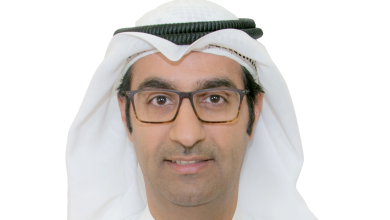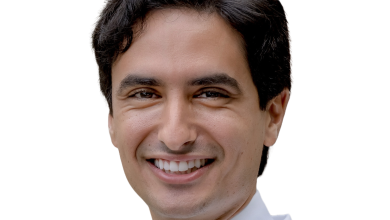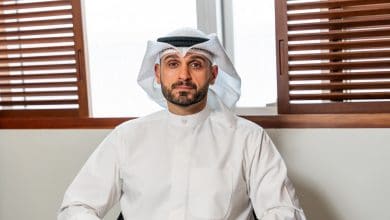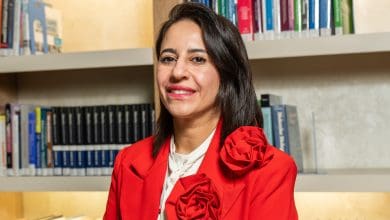Beyond the Classroom: Amal Al-Saleh’s Quest for Educational Excellence in Kuwait
From Personal Experience to National Reform: Al-Saleh’s Leading Educational Research
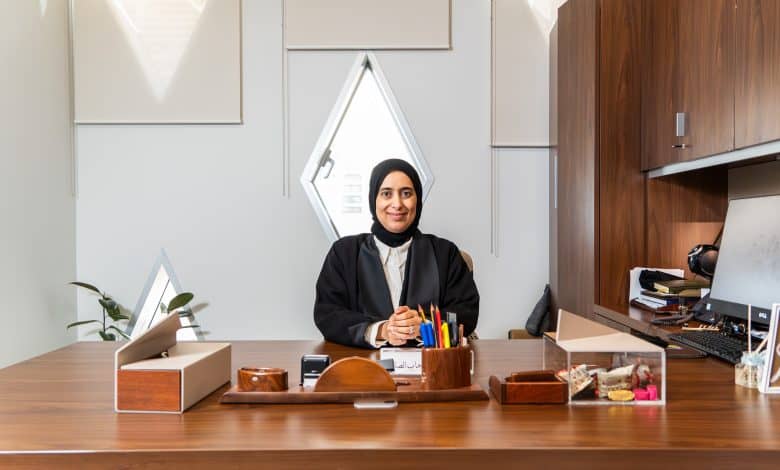
“we have lost the balance between turning schools into happy places of learning that operate on trust and autonomy while still having rule, discipline, and accountability” Amal Al-Saleh.
When Amal Al-Saleh moved to the United States for her doctorate, she enrolled her four kids in American schools. “They didn’t know any word in English,” she remembered. But by the time Al-Saleh moved back to Kuwait four years later, not only had all four been classified as speaking and reading on a native American level, her oldest daughter – a 5th grader at arrival – had also been revealed as a talented artist and someone who excelled at math.
From what Al-Saleh observed, this had been achieved through rigorous testing – and the disciplined studying it required – combined with an enriched lesson plan that nurtured the students’ joy of learning. “When I came to pick up my kids from school, they often didn't want to go home. They enjoyed their time there,” she said.
This sweet spot between accountability on the one hand and self-determination on the other is something the education system in Kuwait is struggling with, says Al-Saleh, who studied Education and Education Administration at Kuwait University and is now an Associate Professor for this subject at her alma mater. Although Kuwait has tried many times to reform its education system in recent decades, “we have lost the balance between turning schools into happy places of learning that operate on trust and autonomy while still having rule, discipline, and accountability,” said Al-Saleh. For her research into how Kuwait can solve this problem, Al-Saleh was awarded a 2024 Jaber Al-Ahmad Prize.
Kuwait has achieved excellent high school graduation rates and high literacy among its citizens. Yet Kuwaiti students routinely underperform in subjects such as math and science compared to other countries, including other Gulf states. And while technically literate, many students struggle to learn things on their own through reading. “Sometimes, when I randomly ask a student in my lectures to read, they can’t really comprehend the meaning of the content,” said Al-Saleh.
Whatever problems already existed grew worse during the COVID-19 pandemic when schools in Kuwait closed for more than six months. Although online learning was put in place it was often ad hoc and proved insufficient. In many schools, students were not required to turn on their cameras initially, said Al-Saleh. As a result, “most students were sleeping or distracted during the online classes. Some teachers even report that parents attended classes instead of the students.” Adding to the problems was that not all schools had adequate internet or computer resources. When the students finally returned to physical classrooms, “the teachers realized that there had been a huge learning loss” during the lockdown, said Al-Saleh. Now, many of these high school students failed when they tried to take the admission exam for Kuwait University, said the Associate Professor. “But then you look at their grades in middle and high school and they’re great. So, what is happening in our schools?”
Al-Saleh has done around 20 studies, collecting data from teachers, school principals, and department heads. One problem – she has found – is a lack of standardized assessment tests. That is: Regular exams that test all students across different schools throughout the country with the same questions. “They have national assessments in the U.K. and in the U.S., but we don’t test students like that in Kuwait,” said Al-Saleh. Instead, the system relies on the schools themselves to assess students in midterm exams and finals.
But schools tended to promote students to the next grade, even if their academics are weak, Al-Saleh has noted. “You get passed to the next year and the next and the next until you finish twelve years in public education. Then you go to college and fail the admission exam because you are not prepared.”
Standardized tests would bring more accountability. But this accountability should be balanced with more autonomy for the schools and teachers in other aspects, said Al-Saleh. “One of the main issues in Kuwait's education system is the centralization of authority, which limits the decision-making power of schools. The schools lack the autonomy to make choices regarding the needs for the school, such as their budget or hiring of teachers.” During the pandemic, this meant, for example, that schools were unable to spend money on internet resources to ease the switch to online teaching. In this and other questions, principals should be given more flexibility in how to lead their schools, said Al-Saleh.
For their part, the principals themselves needed to give more freedom to teachers in the classrooms, she advised. “Some schools are run by autocratic tendencies and even if the principal used to be an art teacher he might question how a math teacher presents their curriculum,” she said. This can create a dilemma for the teacher, since their evaluation may be based 50 percent on how the principal judges their performance in the classroom. She recommended that the supervision should be left to the heads of the department who are experts in the individual subjects, said Al-Saleh. “They need to give teachers and department heads the autonomy to decide on the best ways to lead their classroom and present the materials.”
The Associate Professor hopes that Kuwait will engage in more reforms. “There are many good aspects of our school system,” she said. “We spend a lot of money on schools – on building new schools, on hiring teachers. Enrollment and graduation rates are very high. But now we need to focus more on the quality than the quantity.”
Some schools were already doing well, noted Al-Saleh. “They have open-minded principals and do their own assessment tests to track student skill until graduation.” Organizations such as KFAS that supported research into education also helped, said Al-Saleh. “We have a lot of positives in our system. There’s light at the end of the tunnel.”

